On February 25, 2024, Belarus had a Unified Voting Day (UVD), the so-called elections*. Let’s evaluate how the electoral theme was covered on Belarusian Facebook pages.
As expected, the number of posts collected in the database amounted to 755. For comparison: in January 2024, there were 280 posts, in December 2023 – 211 posts, in November – 167 posts, October 2023 – 135 posts, August-September 2023 – 146 posts.
How the posts published in February were grouped by electoral campaigns:
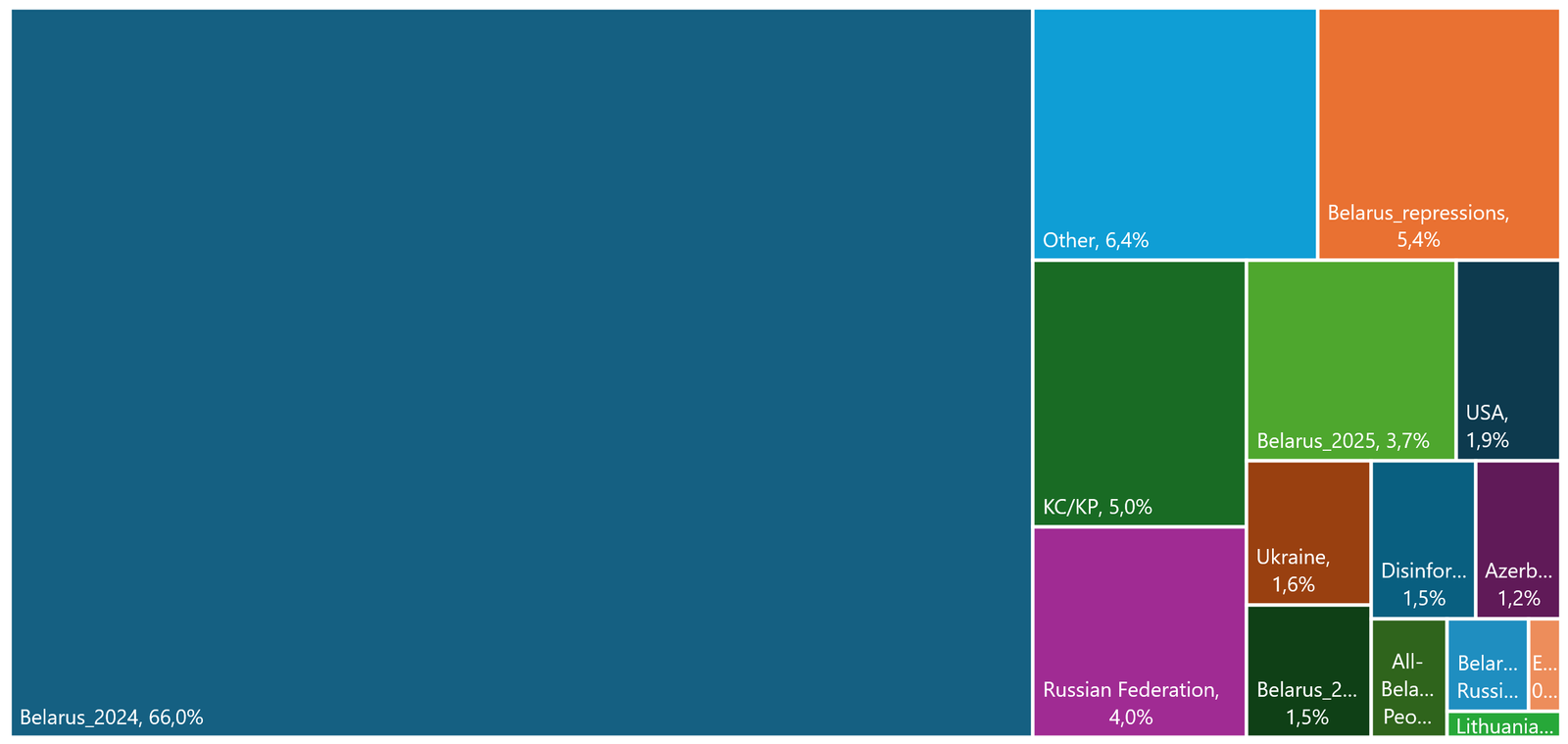
A new significant category is posts mentioning repressions, predominantly political, related to various electoral campaigns in Belarus. Mentions of the presidential elections in 2025 have significantly increased due to A. Lukashenko’s statement at the polling station that he will participate in them. Mentions of elections to the Coordination Council reached 5% – this is the maximum value for all our monitoring of Belarusian Facebook pages on electoral themes. Elections in Ukraine and the USA have almost the same number of mentions. Also, a new category “Disinformation,” which describes examples of disinformation actions in electoral campaigns. The “Other” group included individual mentions of elections in ten countries: Venezuela, Finland, Hungary, Moldova, Pakistan, Slovakia, Senegal, El Salvador, the United Kingdom.
Posts about electoral campaigns were published on 86 Belarusian Facebook pages.
Distribution by sources of publications:
- BELTA 13.6%
- ONT TV channel 6.4%
- Mlyn.by 5.2%
- Nasha Niva 4.8%
- Radio Svaboda 4.5%
- Belsat TV 3.7%
- Zerkalo. News 3.3%
- Pozirk – News about Belarus 3.2%
- Novy Chas / Novy Čas 3.2%
- Viasna. Human rights in Belarus 2.9%
The main sources of publications are Belarusian media with state ownership, which reported on the success of the elections*.
Let’s consider several publications of Belarusian state-owned media that contained various kinds of disinformation.
European Parliament
Belarusian pro-government channels continue the campaign that European officials, parliamentarians consider their peoples not smart or they themselves are not smart. An example of this report on the page of the privately-state-owned TV channel ONT:

It can be assumed that there will be more such odious publications with manipulative content by the date of the European Parliament elections.
Moldova
A quote on Facebook’s page immediately transports to a world of intimidation and demagoguery, about the impossibility of an opposition alternative in Moldova and external control:
Moldova before the elections: protests, dissatisfaction, and the search for an alternative to the Sandu regime
Already this coming autumn, Moldova will plunge into the presidential elections. At the same time, the aggressive Sandu regime, which is successfully managed from the outside, actively opposes any alternative opinion in the country.
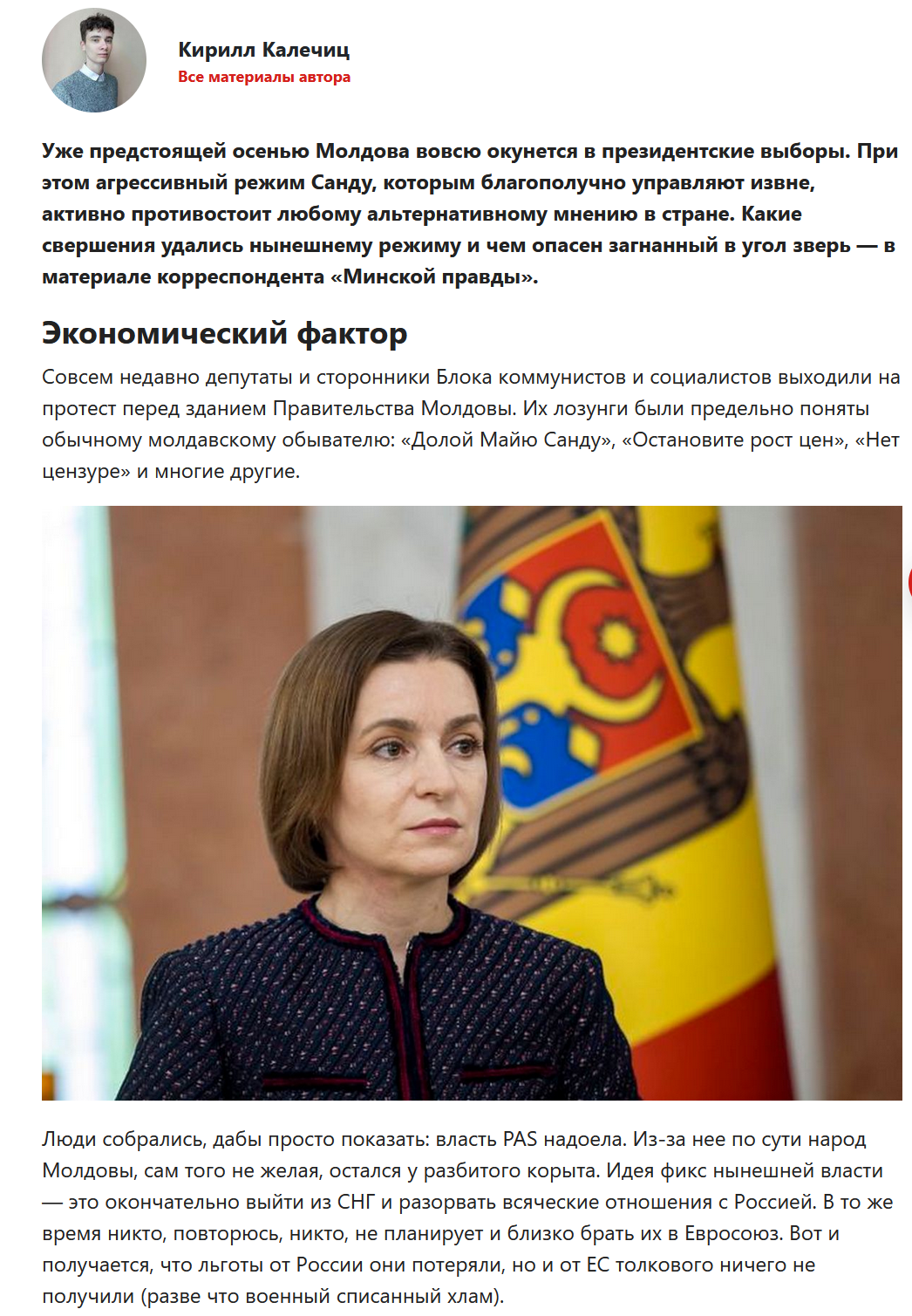
Let’s analyze the entire text for disinformation narratives:
- Emotionally charged language and qualifications: The article uses aggressive rhetoric, for example, describing Sandu’s rule as an “aggressive regime,” which is “successfully managed from outside.” Such expressions may be aimed at forming a negative opinion of the government of Moldova without providing objective evidence for such statements.
- One-sided viewpoint: The article focuses attention on the negative aspects of the current situation in Moldova, while ignoring any potential achievements or positive changes. This may indicate an attempt to present the situation exclusively in a negative light.
- Exaggeration or distortion of facts: The article contains statements that Moldova is completely cutting off relations with Russia and is not receiving any support from the European Union, which may be an exaggeration. In reality, international relations and diplomacy are significantly more complex and nuanced than presented.
- Lack of evidence: Many statements in the article are not supported by specific evidence or links to sources, which makes it difficult to verify their accuracy. In disinformation, fictional or unreliable data are often used to support arguments.
- Use of difficult-to-verify claims: For example, the article mentions “rallies that have not subsided for several months,” and the “search for a worthy opposition candidate,” without providing specific details or sources of information. This creates an image of a crisis, but without the possibility of easy verification of this information.
Ukraine
The Russian Embassy in Belarus, representing the aggressor country, engages in speculations on the topic of elections in Ukraine:
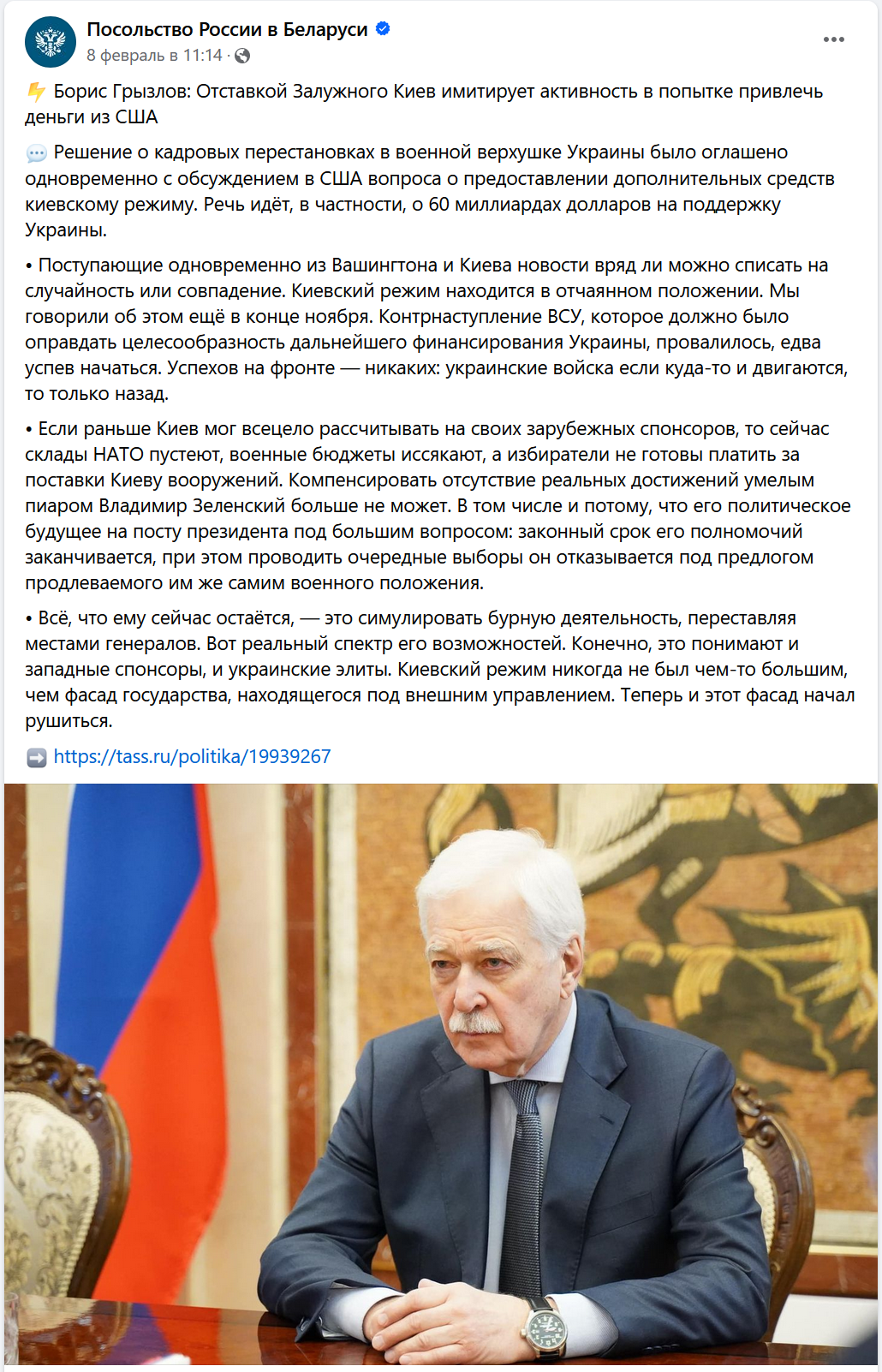
This post only receives support (engagement) from bots.
Belarusian representatives of “round tables” also do not lag behind in discussing Ukrainian elections, as in this material:
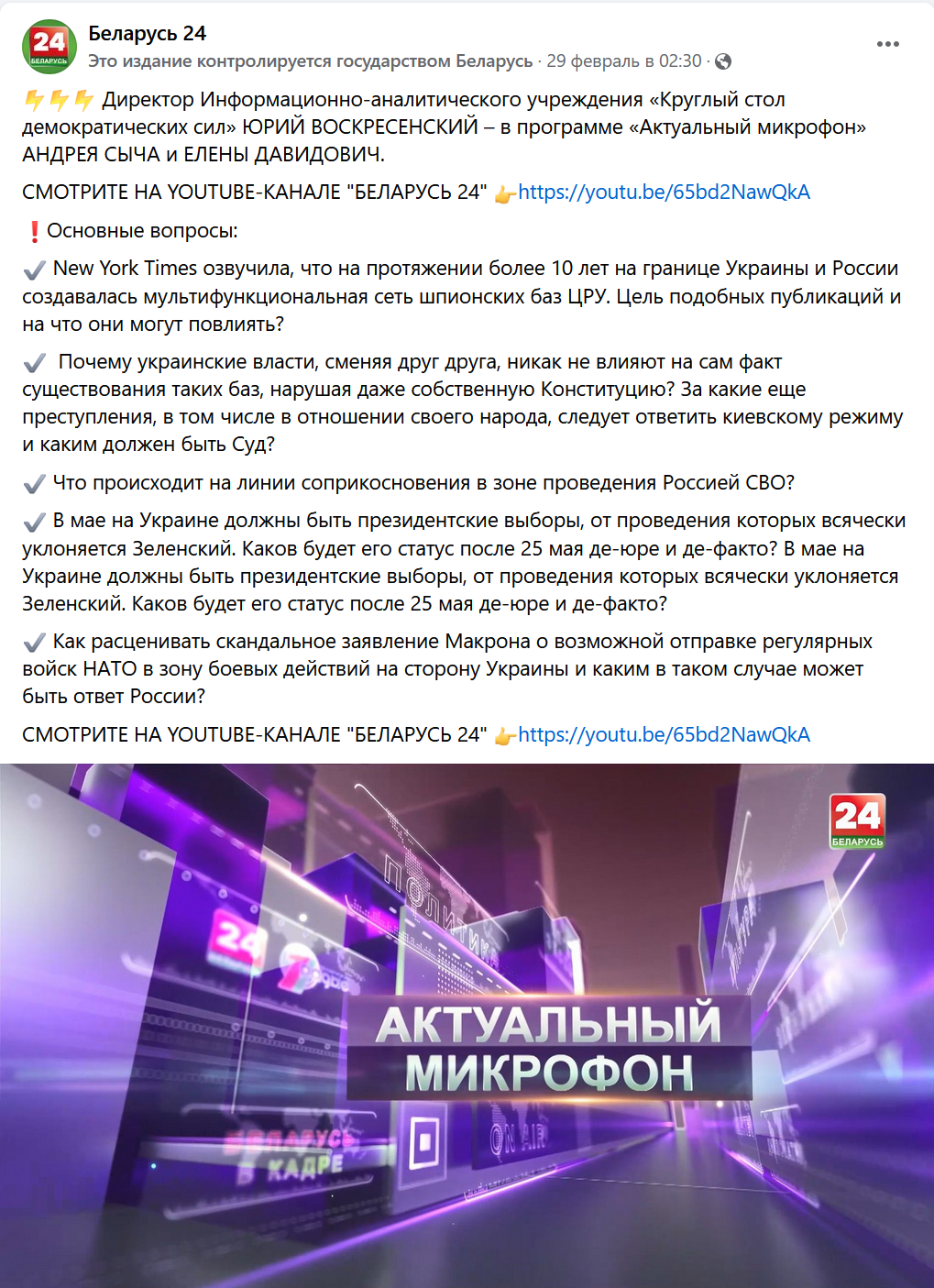
Lithuania
Commentator “SB. Belarus” Maksim Osipov believes that the readiness of 25.8% of Lithuanian voters, according to a December sociological survey, to vote for the incumbent president Gintas Nauseda indicates that “Western democracies are rapidly degrading”:

Finally, recommendations for combating fakes and disinformation from one of the oldest current Belarusian politicians:

“You said it right – dialogue platforms. The spoken word. You have to go to the people. We have a manageable country, we can reach out to everyone. Come and refute what they see (in their smartphones. – Ed.) The battle moves to this field. There’s politics and finances. Everything will be there. Elections and non-elections. So we need to prepare to work here.”

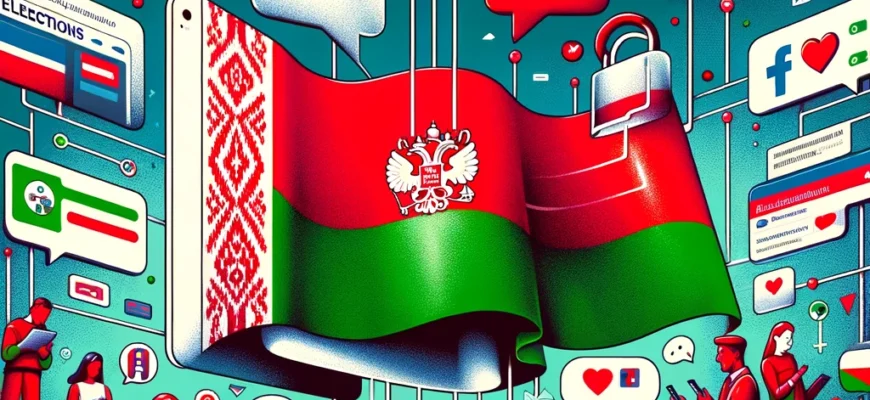

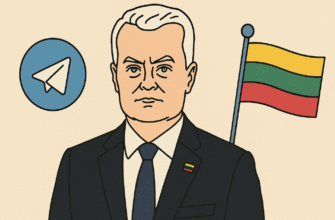

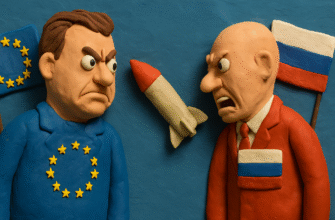

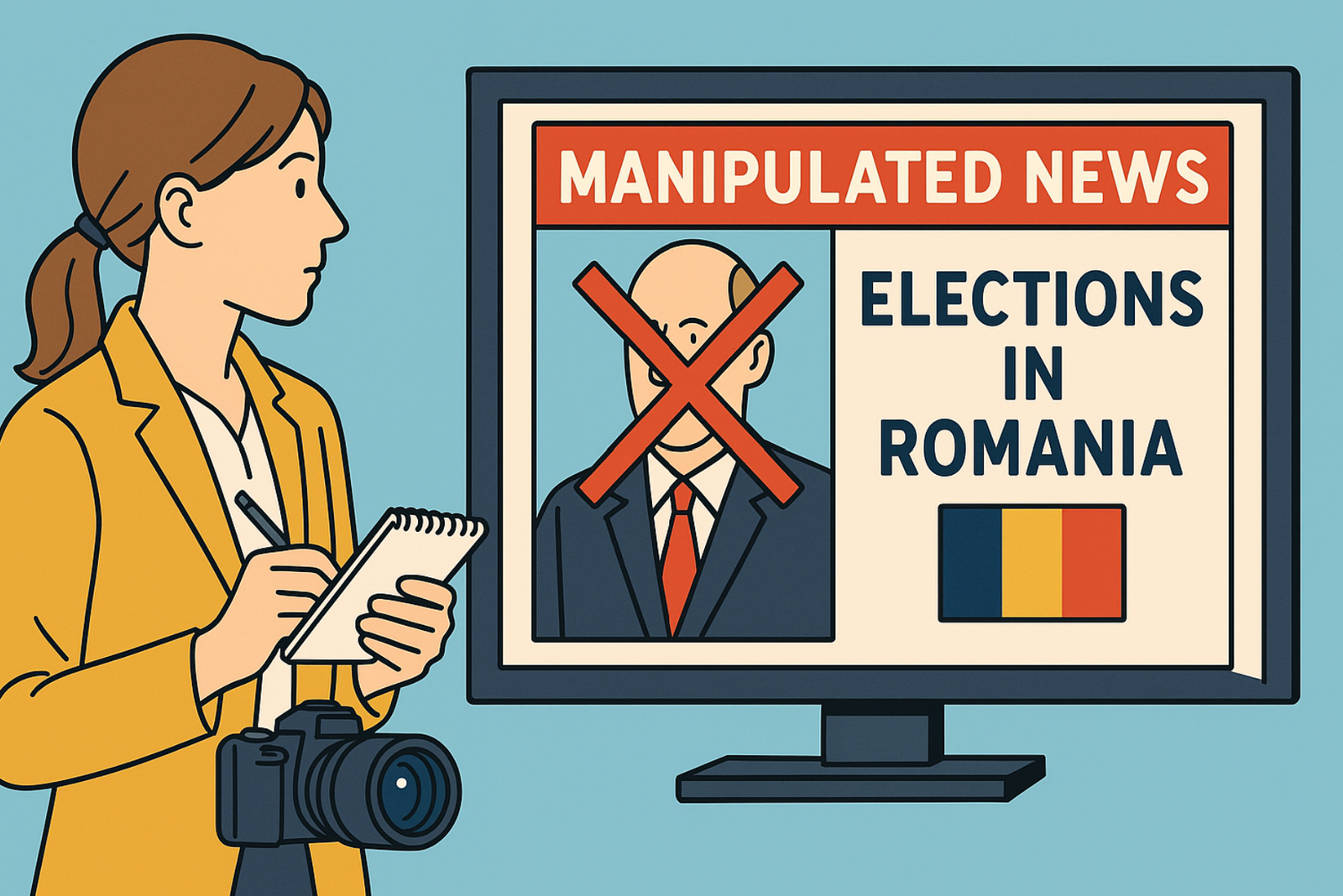


Comments are closed.